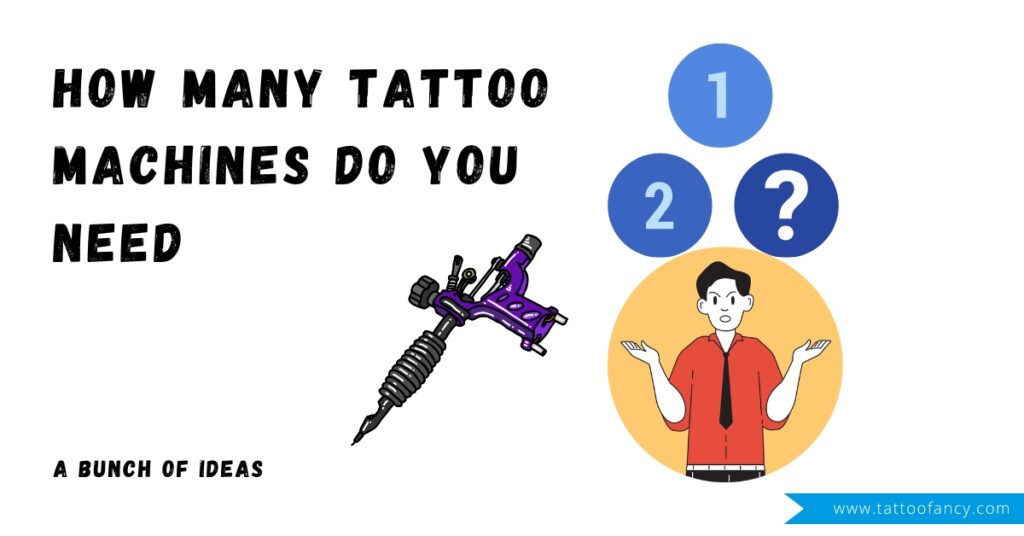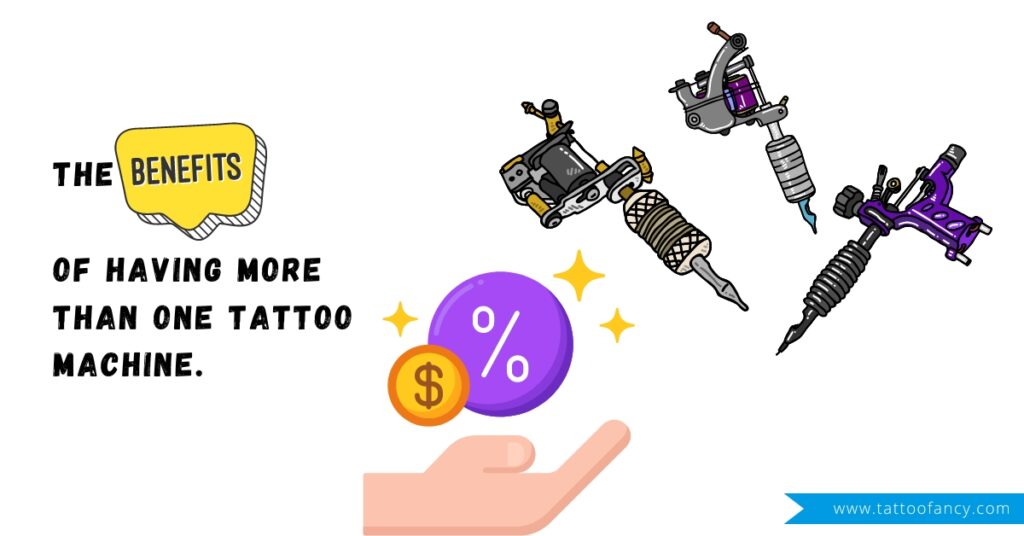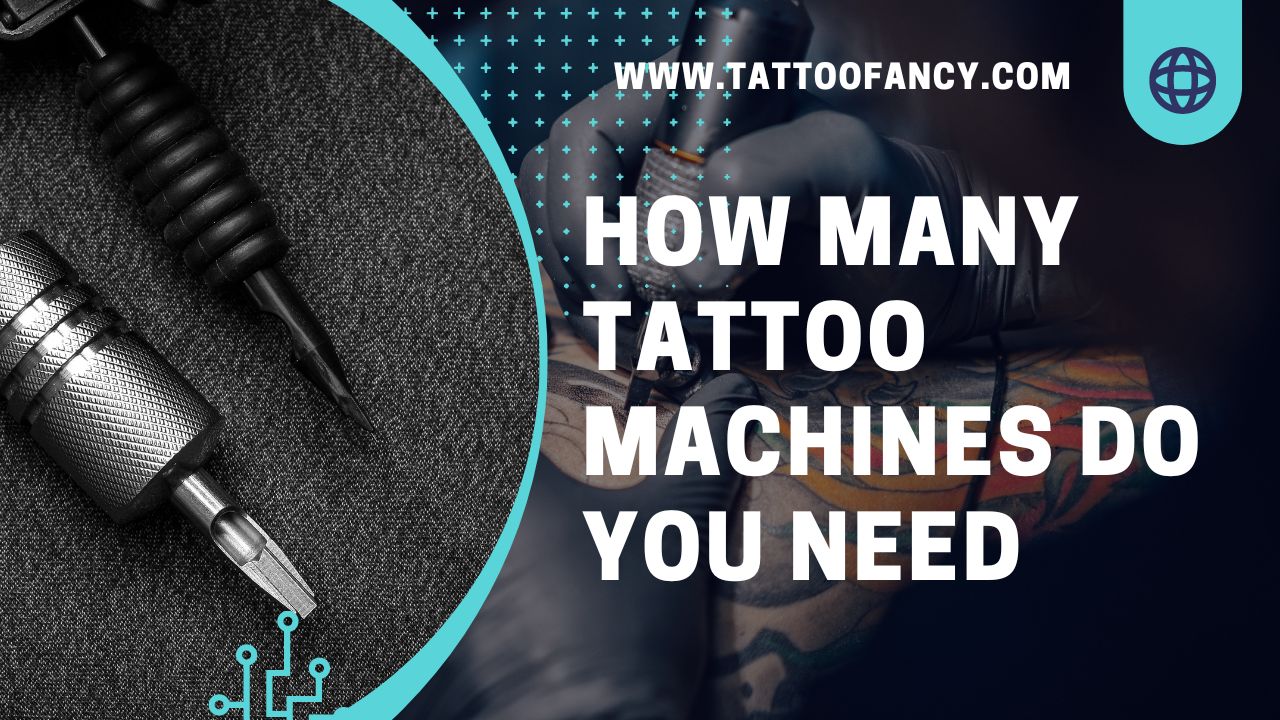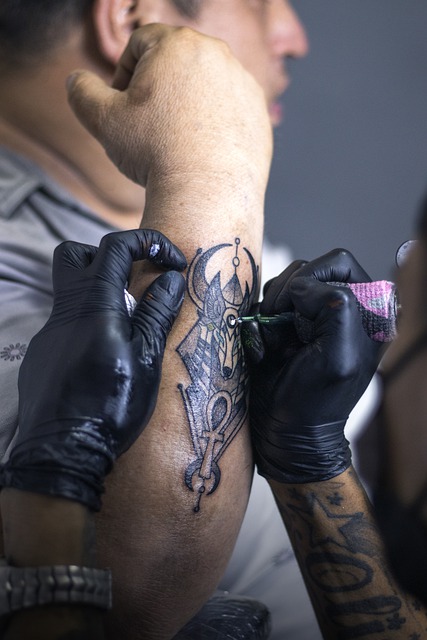
If you’re thinking about starting a tattoo shop, one of the first questions you need to answer is how many tattoo machines you’ll need. There’s no one-size-fits-all answer to this question, as the number of machines you’ll need will depend on a number of factors, including the size of your shop, the number of artists you plan to have on staff, and the types of tattoos you want to offer.
But don’t worry, we’re here to help. In this article, we’ll walk you through everything you need to consider when deciding how many tattoo machines to buy for your shop. By the end, you’ll have a good idea of the minimum number of machines you need to get started, as well as some tips for expanding your shop down the road.
1. How many tattoo machines do you need
If you’re thinking about starting a tattoo shop, you’ll need to purchase at least one tattoo machine. But how many machines do you really need? It depends on a few factors, such as the size of your shop, the number of artists you employ, and the types of tattoos you plan to offer.
Generally speaking, most tattoo shops have between 2 and 8 machines. This gives artists the ability to offer a wide range of tattoo styles to their clients. If your shop is on the smaller side, you may only need 2 or 3 machines. But if you’re planning to offer more specialized tattoos, such as portraits or custom designs, you may need 4 or 5 machines.
Ultimately, the number of tattoo machines you need will depend on your specific business needs. But with a little planning, you can ensure that you have the right number of machines for your shop.
2. The benefits of having more than one tattoo machine.
Having more than one tattoo machine can be extremely beneficial for a number of reasons. Firstly, it allows for greater flexibility when it comes to tattooing. Different machines can be used for different purposes, meaning that the tattoo artist can tailor their work to the individual client. Secondly, having more than one machine can help to speed up the tattooing process, as different machines can be used for different parts of the tattoo. Finally, it can simply be more fun and interesting to have more than one machine to use!
3. The different types of tattoo machines
A tattoo machine is a hand-held device used to create and apply permanent or temporary tattoos. The machine operates by driving a needle into the skin to deposit ink into the dermis. There are a variety of tattoo machines on the market, each designed to serve a specific purpose.
The most common type of tattoo machine is the electric rotary tattoo machine, which uses a rotary motor to drive the needle. This type of machine is typically used for lining and shading. Another popular type of tattoo machine is the coil tattoo machine, which uses an electromagnetic coil to move the needle. This type of machine is typically used for outlining.
No matter what type of tattoo machine you use, it is important to sterilize the machine and needles before each use. This will help to prevent the spread of infection.
4. The pros and cons of each type of machine
There are a few different types of tattoo machines available on the market, each with its own set of pros and cons. Here is a rundown of the most popular types of machines, to help you make an informed decision about which one is right for you:
1. The coil tattoo machine is the most popular type of machine used by professional tattoo artists. It is known for its reliability and power, and can be used for a variety of tattoo styles.
The main downside of coil machines is that they are generally louder than other types of machines, and can be more difficult to control for beginners.
2. The rotary tattoo machine is another popular option, and is known for being quieter and easier to control than coil machines. Rotary machines are often used for smaller tattoos, or for detailed work.
The main downside of rotary machines is that they can be less powerful than coil machines, making them less suitable for large or complex tattoos.
3. The pneumatic tattoo machine is the newest type of machine on the market, and uses compressed air to operate. Pneumatic machines are known for being incredibly quiet, and are very easy to control.
The main downside of pneumatic machines is that they are not as powerful as other types
5. How to choose the right machine for you
With all of the different machines on the market, it can be hard to decide which one is right for you. Here are a few things to consider when choosing a machine:
- What is your budget?
- What are the features that are most important to you?
- What is the machine’s reputation?
- What is the warranty?
By taking the time to answer these questions, you can narrow down your choices and find the machine that is perfect for you.
6. The drawbacks of having more than one tattoo machine

With the popularity of tattoos on the rise, more and more people are considering getting inked. But before you take the plunge, it’s important to consider the potential drawbacks of having more than one tattoo machine. Here are a few things to keep in mind:
The potential drawbacks of having more than one tattoo machine include the possibility of infection, the need for more frequent touch-ups, and the increased cost of maintenance. However, these drawbacks can be mitigated by taking proper care of your tattoos and choosing a reputable artist.


